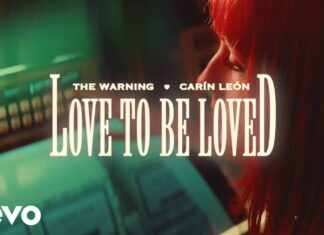
Music marketing is the process of promoting and selling music recordings and performances. It is a form of marketing that is used by the music industry to encourage people to buy or listen to music.
Music marketing includes activities such as advertising, publicity, sales promotion, and public relations. It is important for music marketers to understand the music business and the needs of their target audience.
Music marketing can be a very effective way to reach potential customers and build a fan base. It can also be a great way to generate income for artists and music businesses.
Music Marketing: An Introduction
Music marketing is the process of using marketing techniques to promote and sell music. It can be used to promote and sell both recorded music and live concerts. Music marketing can be used by record labels, music venues, and artists themselves.
Music marketing is a broad term that can encompass many different activities. Some common music marketing activities include creating and distributing flyers and posters, booking shows, sending out press kits, and working with radio stations. Music marketing can also involve more creative activities such as developing marketing campaigns around a specific song or album, or creating music videos.
The goal of music marketing is to generate interest in the music being promoted and to convert that interest into sales. To be successful, music marketing must be targeted and well-planned. It is also important to track the results of music marketing campaigns so that you can adjust your approach as needed.
The Benefits of Music Marketing
Music marketing is the process of using music to promote a product or service. It can be used to raise awareness of a brand, to build customer loyalty, or to drive sales. Music marketing can be an effective tool for any business, but it is particularly well suited to businesses that sell products or services that are associated with music.
There are many benefits to music marketing. One of the most important is that it can help to build an emotional connection with customers. Music can evoke strong emotions, and this can be used to create a positive association with a brand. Music marketing can also be used to reach a wide audience. It can be used to target specific demographics, or it can be used to reach a general audience.
Music marketing can be an effective way to differentiate a business from its competitors. If a business can successfully use music to create a unique and appealing identity, it will be more likely to stand out from the crowd. Music marketing can also be used to create a sense of excitement and anticipation around a product or service launch.
Overall, music marketing can be a powerful and versatile tool that can be used to achieve a variety of marketing objectives. When used effectively, it can help to build customer loyalty, increase sales, and differentiate a business from its competitors.
The Different Types of Music Marketing
Music marketing is the process of promoting and marketing music to audiences. It can be used to promote both live and recorded music, and is often used in conjunction with other forms of marketing such as advertising, PR, and social media. There are many different types of music marketing, and the most effective approach will often vary depending on the type of music being promoted, the target audience, and the budget.
Some common types of music marketing include touring, online marketing, radio promotion, and television promotion. Touring is a great way to build a following and generate buzz for a band or artist, and can be an effective marketing tool even on a small budget. Online marketing can be used to reach a wider audience with less effort, and is often used in conjunction with other forms of marketing such as social media. Radio promotion can be a great way to reach a target audience, and television promotion can be a powerful tool for reach a mass audience.
Music Marketing Strategies
There is no one-size-fits-all answer when it comes to music marketing, but there are some key strategies that can help get your music in front of new audiences. If you’re serious about marketing your music, it’s important to have a plan in place that includes both online and offline marketing tactics.
Some effective music marketing strategies include:
1. Creating a strong social media presence
2. Developing relationships with music bloggers and tastemakers such as artistrack
3. Releasing your music on streaming platforms like Spotify and Apple Music
4. Creating engaging music videos
5. Touring and playing live shows
6. Selling merchandise
7. Doing radio interviews and podcasts
8. Creating a mailing list
9. Partnering with other brands and businesses
10. Giving away free music
Music Marketing Tips
As an unsigned artist, it can be difficult to get your music out there and build a following. However, with a little creativity and hard work, it is possible to successfully market your music and grow your fan base. Here are a few tips to get you started:
1. Make use of social media. Platforms like Twitter, Instagram, and Facebook are free and easy ways to reach out to potential fans. Post regularly, interact with other users, and share interesting content to help get your name out there.
2. Play live shows. Performing live is a great way to connect with fans and build up a following. Make sure to promote your shows in advance and hand out flyers or business cards afterwards so people can keep in touch.
3. Create a professional website. In today’s digital age, having a website is essential for any musician. Use your website to sell your music, promote upcoming shows, and share blog posts or other content.
4. Get involved with local radio. Many small and medium-sized radio stations are always on the lookout for new music to play. Contact your local stations and see if they’re interested in featuring your songs.
5. Make use of online music platforms. Platforms like SoundCloud and Bandcamp are great for getting your music out there and connecting with potential fans. Make sure to take advantage of all the features these platforms offer, such as sharing and embedding your tracks on other websites.
By following these tips, you can start to build a buzz around your music and reach a wider audience. It takes time and effort, but with dedication and perseverance, you can succeed in the music industry.
The Future of Music Marketing
The future of music marketing is shrouded in potential but fraught with uncertainty. The industry is at a pivotal moment, and the decisions made in the coming years will shape the landscape for decades to come.
There are a number of factors that will influence the future of music marketing. The first is the continued rise of streaming services. These platforms have already upended the traditional model of music consumption and are only getting more popular. As more people turn to streaming, the need for traditional marketing channels will diminish.
Another factor is the increasing fragmentation of the music market. There are more genres and sub-genres than ever before, and each one has its own dedicated fanbase. This makes it difficult to reach a wide audience with a single marketing campaign. Instead, marketers will need to tailor their campaigns to specific genres and sub-genres.
Finally, the future of music marketing will be shaped by the ever-changing technology landscape. New platforms and technologies are constantly emerging, and it can be difficult to keep up. Marketers will need to be nimble and adapt to the latest changes in order to stay ahead of the curve.
























 🔥 Limited Time: Get 55% OFF All Plans - Ends in:
🔥 Limited Time: Get 55% OFF All Plans - Ends in: